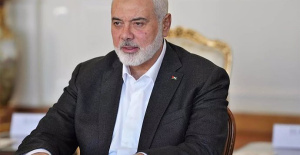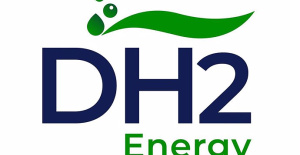The mechanism has the risk of being a "subsidy to those who do not finance it", referring to French consumers
MADRID, 30 Sep. (EUROPA PRESS) -
An average household with a consumption of about eight kilowatt hours (KWh) per day has saved an average of 69 euros since the beginning of the application of the cap on gas for electricity generation, in force in Spain since June 15, according to a report prepared by EsadeEcPol, Esade's economic policy research center.
According to their estimates, without the gas cap, electricity prices in households covered by the regulated rate in Spain would have been 24% higher than those registered in the country between June 15 and August 31, so the measure, according to the institution, has achieved "its central objective."
Specifically, the results of the estimation indicate that, with "high confidence", the average price of electricity for consumers in the regulated market would have been between 19% and 30% higher in the absence of the ceiling, with an estimate point of 24.4%.
As detailed by Esade, its calculation model allows "almost guarantee" that this decline is not due to other causes or random phenomena.
However, the report concludes that this saving entails a "significant cost" in the sense that since the measure came into force the consumption of gas to generate electricity has increased "notably", specifically, around 139 gigawatts hour (GWh) per day for the whole period.
"We also observe that this increase has occurred at the same time that the use of other technologies has decreased, especially cogeneration and hydroelectricity. Of course, we must take into account that the context of pronounced drought during this summer that has made production difficult hydroelectric prevents attributing this drop to the new measure", adds the study.
Despite this, the researchers point out that the data obtained suggest that the cap on gas can reduce, "at least when it coincides with adverse events for clean technologies", the incentive for the transition to non-polluting sources.
"In particular, the opposite effect occurs: an incentive to gas consumption, something undesirable in the current European context, which sets short-term savings and long-term decarbonisation objectives at the same time," the study highlights.
On the other hand, the application of the Iberian mechanism has also had an impact on electricity exports to France and Portugal, which, according to the study, "have increased considerably."
In this sense, the Third Vice President and Minister for the Ecological Transition, Teresa Ribera, has recognized on several occasions that the situation of the French nuclear park causes the French country to import electricity "to the maximum" from neighboring countries, while also has stressed that 25% of the electricity consumed in Portugal comes from Spain.
In fact, Esade stresses that if the trend observed today continues, by the end of the year electricity exports will double those made in 2021.
The report also underlines that the cap on gas, regardless of the savings achieved, risks being a "subsidy to those who do not finance it", referring to French consumers.
"Both events occur in a context of nuclear failure, the basis of the French electricity supply, which complicates the interpretation of the data. However, it serves as an example of what could happen with a measure similar to this compensation applied in throughout the EU and with the interconnections of its member countries abroad: there could be a "leakage" of the money invested in the form of greater consumption of electricity based on gas towards border countries that would benefit from said investment at zero cost", he adds the study.

 Exploring Cardano: Inner Workings and Advantages of this Cryptocurrency
Exploring Cardano: Inner Workings and Advantages of this Cryptocurrency Seville.- Economy.- Innova.- STSA inaugurates its new painting and sealing hangar in San Pablo, for 18 million
Seville.- Economy.- Innova.- STSA inaugurates its new painting and sealing hangar in San Pablo, for 18 million Innova.- More than 300 volunteers join the Andalucía Compromiso Digital network in one month to facilitate access to ICT
Innova.- More than 300 volunteers join the Andalucía Compromiso Digital network in one month to facilitate access to ICT Innova.-AMP.- Ayesa acquires 51% of Sadiel, which will create new technological engineering products and expand markets
Innova.-AMP.- Ayesa acquires 51% of Sadiel, which will create new technological engineering products and expand markets Hamas views Israel's latest deal proposal in "positive spirit"
Hamas views Israel's latest deal proposal in "positive spirit" The Ibex 35 rises 0.22% mid-session driven by Aena (4.66) and Sabadell (4.57%)
The Ibex 35 rises 0.22% mid-session driven by Aena (4.66) and Sabadell (4.57%) STATEMENT: Selena Romero and Roberto Pérez winners of the 22nd Nacho Juncosa Memorial - International under-16 tennis tournament
STATEMENT: Selena Romero and Roberto Pérez winners of the 22nd Nacho Juncosa Memorial - International under-16 tennis tournament STATEMENT: DH2 Energy is the winner in the first European renewable hydrogen auction
STATEMENT: DH2 Energy is the winner in the first European renewable hydrogen auction How Blockchain in being used to shape the future
How Blockchain in being used to shape the future Not just BTC and ETH: Here Are Some More Interesting Coins Worth Focusing on
Not just BTC and ETH: Here Are Some More Interesting Coins Worth Focusing on UPV students design an app that helps improve the ventilation of homes in the face of high temperatures
UPV students design an app that helps improve the ventilation of homes in the face of high temperatures Ivace and promotes a less invasive device for the early detection of prostate cancer
Ivace and promotes a less invasive device for the early detection of prostate cancer Valencia unanimously approves the ordinance to allocate spaces to test innovative initiatives
Valencia unanimously approves the ordinance to allocate spaces to test innovative initiatives UPV researchers promote a paid master's degree as a "talent factory" in integrated photonics
UPV researchers promote a paid master's degree as a "talent factory" in integrated photonics A million people demonstrate in France against Macron's pension reform
A million people demonstrate in France against Macron's pension reform Russia launches several missiles against "critical infrastructure" in the city of Zaporizhia
Russia launches several missiles against "critical infrastructure" in the city of Zaporizhia A "procession" remembers the dead of the Calabria shipwreck as bodies continue to wash up on the shore
A "procession" remembers the dead of the Calabria shipwreck as bodies continue to wash up on the shore Prison sentences handed down for three prominent Hong Kong pro-democracy activists
Prison sentences handed down for three prominent Hong Kong pro-democracy activists ETH continues to leave trading platforms, Ethereum balance on exchanges lowest in 3 years
ETH continues to leave trading platforms, Ethereum balance on exchanges lowest in 3 years Investors invest $450 million in Consensys, Ethereum incubator now valued at $7 billion
Investors invest $450 million in Consensys, Ethereum incubator now valued at $7 billion Alchemy Integrates Ethereum L2 Product Starknet to Enhance Web3 Scalability at a Price 100x Lower Than L1 Fees
Alchemy Integrates Ethereum L2 Product Starknet to Enhance Web3 Scalability at a Price 100x Lower Than L1 Fees Mining Report: Bitcoin's Electricity Consumption Declines by 25% in Q1 2022
Mining Report: Bitcoin's Electricity Consumption Declines by 25% in Q1 2022 Oil-to-Bitcoin Mining Firm Crusoe Energy Systems Raised $505 Million
Oil-to-Bitcoin Mining Firm Crusoe Energy Systems Raised $505 Million Microbt reveals the latest Bitcoin mining rigs -- Machines produce up to 126 TH/s with custom 5nm chip design
Microbt reveals the latest Bitcoin mining rigs -- Machines produce up to 126 TH/s with custom 5nm chip design Bitcoin's Mining Difficulty Hits a Lifetime High, With More Than 90% of BTC Supply Issued
Bitcoin's Mining Difficulty Hits a Lifetime High, With More Than 90% of BTC Supply Issued The Biggest Movers are Near, EOS, and RUNE during Friday's Selloff
The Biggest Movers are Near, EOS, and RUNE during Friday's Selloff Global Markets Spooked by a Hawkish Fed and Covid, Stocks and Crypto Gain After Musk Buys Twitter
Global Markets Spooked by a Hawkish Fed and Covid, Stocks and Crypto Gain After Musk Buys Twitter Bitso to offset carbon emissions from the Trading Platform's ERC20, ETH, and BTC Transactions
Bitso to offset carbon emissions from the Trading Platform's ERC20, ETH, and BTC Transactions Draftkings Announces 2022 College Hoops NFT Selection for March Madness
Draftkings Announces 2022 College Hoops NFT Selection for March Madness



























